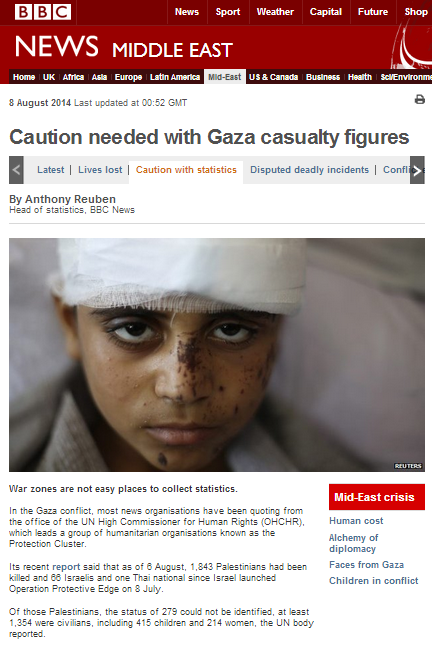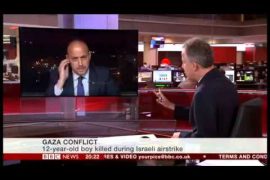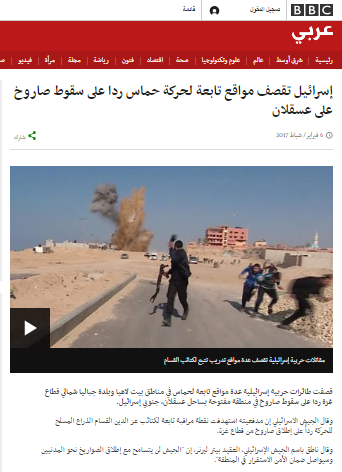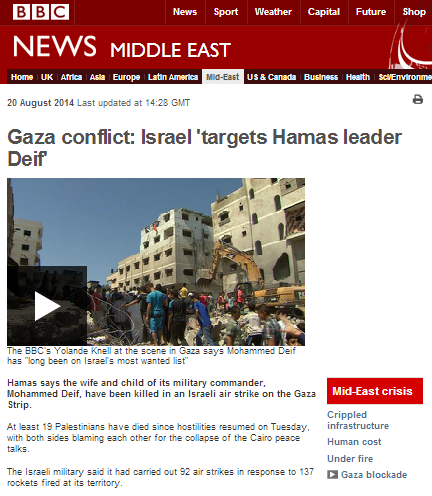On August 15th 2014 the BBC added a footnote to an article titled “Caution needed with Gaza casualty figures” which, after originally appearing on the BBC News website on August 8th, had undergone a series of very significant changes three days later. The last line of that footnote read:

“We expect to return to this subject at a later date.”
Not only has the BBC never bothered to explain to its funding public why an article written by its own Head of Statistics was so radically altered but it has also not returned to the subject of casualty ratios during the 2014 conflict in any meaningful way, preferring to quote UN supplied figures sourced from political actors and with no independent BBC verification of those figures apparent.
One organization which has carried out meticulous identification of the names appearing on the casualty lists supplied by Hamas and additional actors is the Meir Amit Intelligence and Information Centre and it recently published its eleventh report on the topic – available here. Links to the previous ten reports can be found here.
Notably, this latest ITIC report studies fifty names which did not appear on the lists of casualties supplied by Hamas. All of those 50 casualties belonged to assorted terrorist organisations and most of them were Hamas operatives.
The ITIC report states:
“The findings of our investigation so far (based on an examination of approximately 61% of the names of the dead) suggest that terrorist operatives constitute 48.7% of the names that have been identified, and noninvolved civilians constitute approximately 51.3%. This ratio may vary in the future, but not significantly, in our assessment.” […]
“This ratio differs from the findings of the report of the UN Commission of Inquiry, indicating that 1,462 civilians were killed, out of 2,251 Palestinians fatalities, i.e., around 65% of all the casualties were civilians. Thus, by implication, according to the UN report, around 35% of the dead were terrorist operatives, although the report refrains from saying explicitly that all the others are operatives affiliated with terrorist organizations (the report uses the phrase “Palestinian armed groups”‘).”
A media organization truly committed to accuracy and impartiality would clearly have made good on its stated intention to “return to this subject at a later date” in order to ensure that the information it continues to quote and promote is indeed accurate, that its rulings on complaints on the topic are fact-based and fair and that its impartiality is not compromised by the failure to provide audiences with accurate civilian/combatant casualty ratios on one side of the conflict – as was for example evident in the BBC’s recent prolific coverage of the conflict’s anniversary.
“Now on this day last year another war erupted in Gaza. It lasted 51 days and turned into the longest, most costly conflict of the three wars in the past six years. More than 2,100 people were killed in Gaza and 72 were killed on the Israeli side including 66 soldiers. And a very high price paid by civilians – and most of all children – became a defining issue in this confrontation.” (Rebecca Kesby, ‘BBC World Update: Daily Commute’, BBC World Service, 8/7/2015) [emphasis added]
Of course the longer the BBC fails to address this topic openly and honestly, the more it fosters the impression of a political motivation behind the both changes made to its August 8th 2014 article and its subsequent presentation of the subject of civilian/combatant ratios in the Gaza Strip.
Related Articles:
BBC promotion of the inaccurate notion of exceptional civilian casualties in Gaza
BBC Complaints defends its use of Hamas supplied casualty figures
What connects Hamas supplied casualty figures to the BBC’s expedited complaints procedure?




